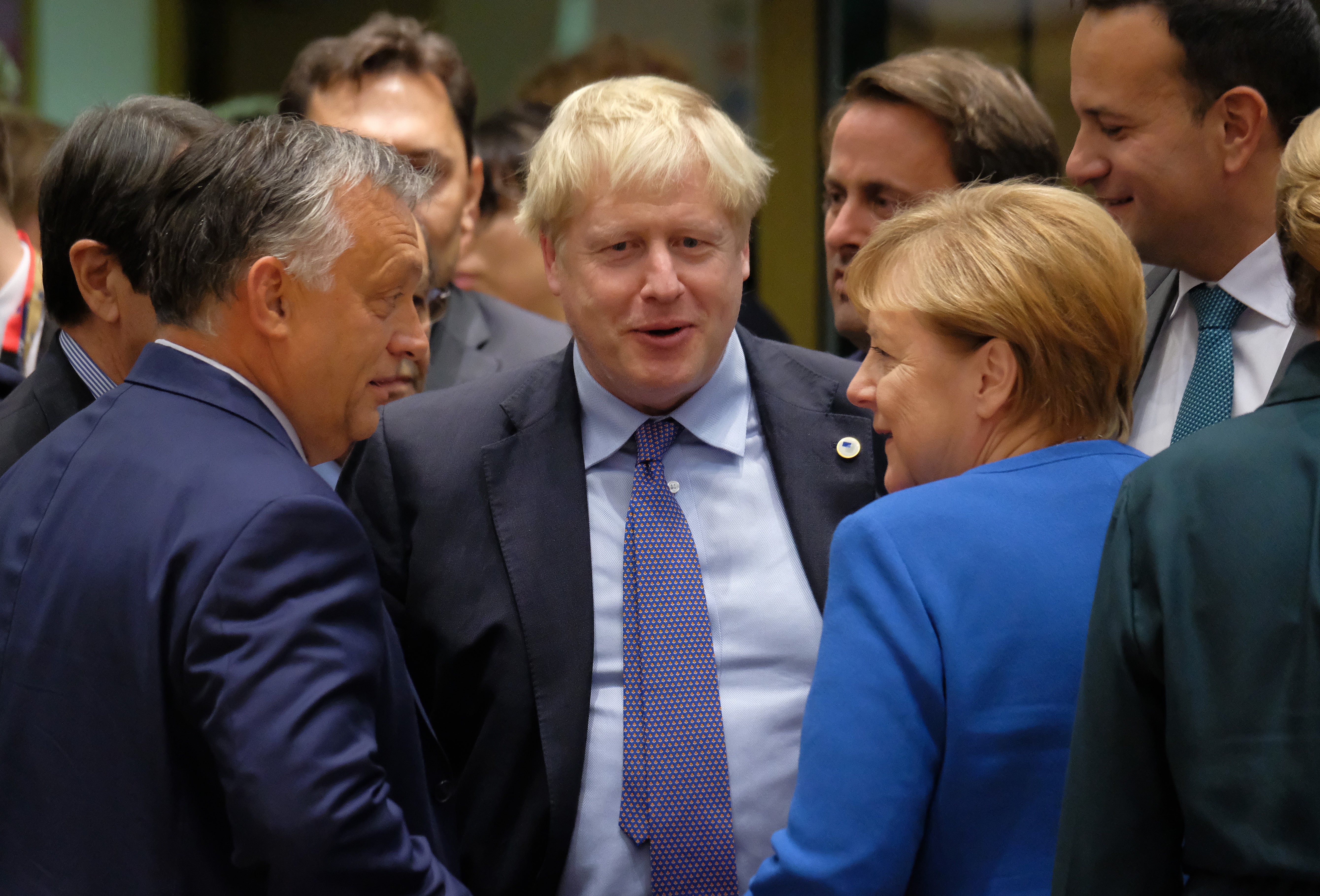Your support helps us to tell the story
From reproductive rights to climate change to Big Tech, The Independent is on the ground when the story is developing. Whether it's investigating the financials of Elon Musk's pro-Trump PAC or producing our latest documentary, 'The A Word', which shines a light on the American women fighting for reproductive rights, we know how important it is to parse out the facts from the messaging.
At such a critical moment in US history, we need reporters on the ground. Your donation allows us to keep sending journalists to speak to both sides of the story.
The Independent is trusted by Americans across the entire political spectrum. And unlike many other quality news outlets, we choose not to lock Americans out of our reporting and analysis with paywalls. We believe quality journalism should be available to everyone, paid for by those who can afford it.
Your support makes all the difference.Brussels is putting aside its chats about budgets, Covid and climate change, to make way for an old favourite: for the first time since most of us had heard of "contact tracing", Brexit is back on the menu at an EU leaders' meeting.
Some summits are headline-grabbers because of what's said by leaders in public. This one will be important because of what's going on behind the scenes.
For once, EU diplomats expect "quite a lengthy discussion" on Brexit between heads of government, but by contrast, they are only anticipating a "succinct" public statement at the end that doesn't, at first glance, add much.
Indeed, a draft version of the communiqué prepared by officials has already leaked, and it's full of Brussels greatest hits: "intensifying" talks, progress not being "sufficient". It might as well be 2018.
Why the mismatch? For starters, this will be the first real discussion EU leaders have had on Brexit since the pandemic started, and they need to get up to speed.
But crucially, it will also be the first space for the EU to decide how much it really wants a deal and what – if any – compromises it would be willing to make. That will have to be hashed out.
There is no question of changing the official mandate given to chief negotiator Michel Barnier - on that, all member states are agreed. But there may be differences in emphasis and strategy to be worked out.
"It's a bit like one of your children not wanting to eat her or his veggies," one says.
"What can you do? It's wise to eat them because you have to grow up to be healthy and fit. Do you force it through her mouth? That's one option.
"The other way is to try and find another way around the issue and mix it with bananas or something. In the end it's the same, he or she will eat her veggies."
British officials detect room for compromise to emerge, and on some issues, like the so-called level playing field on regulations, there are chinks of light.
That issue has effectively boiled down to Britain wanting more freedom to set its own state aid rules, and has long looked intractable. But a recent UK decision to quietly give a little detail about what its domestic state aid regulator would look like has piqued the interest on the EU side and oiled the wheels a bit.
Meanwhile the UK believes the EU has moved away from a demand to get the European Court of Justice involved in the issue, relaxing a red line. Officials on both sides are starting to sound a bit upbeat about this one, even if it's hard to see the "landing zone" quite yet.
But on other topics like fishing, which is hugely politically charged whether you're looking at it from Dover or Dunkirk, there seems to have been essentially no serious movement – despite early noises by Michel Barnier about compromise.
On this issue, whatever is agreed, someone loses - and in an obvious and immediate way: you can either catch a fish or you can't. A deal here looks as far off as it ever has.
In some respects, the UK's recent antics have hindered rather than helped matters. The Internal Market Bill, which ministers admit breaks international law and overrides part of last year's hard-won deal on Northern Ireland, has genuinely ruffled feathers here.
"That has shown my government if we come to a possible solution, it has to come together with a very, very, very robust dispute settlement and governance system otherwise it will not fly," one diplomat, from a usually UK-sympathetic state says.
Don't expect this meeting to drop any big bombshells by itself. But keep an eye out for how Boris Johnson reacts to it later on Friday: what's discussed in the futuristic-looking Europa building away



Join our commenting forum
Join thought-provoking conversations, follow other Independent readers and see their replies
Comments